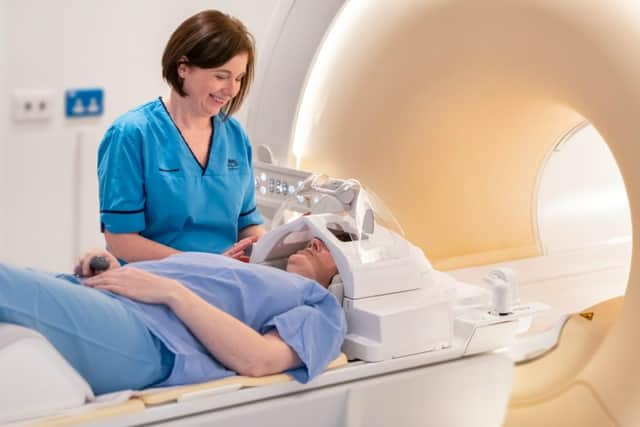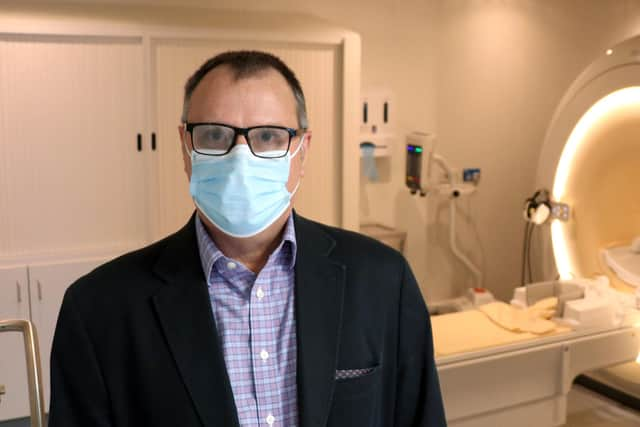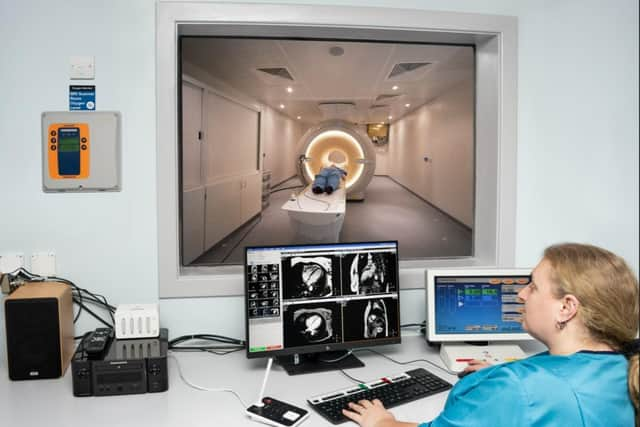Fit like? MRI scanner speaks in Doric to put vulnerable patients at ease
Aberdeen University’s MRI scanner, which has recently undergone a £1.2 million upgrade, was pre-programmed to speak 17 languages, including French, Spanish, Russian, Arabic and Mandarin.
Doric, or North-East Scots, has now been added to the list.
Advertisement
Hide AdAdvertisement
Hide AdExperts hope the change will help make patients feel more comfortable when getting their scan.


In particular this may help patients with dementia, who can experience a partial loss of their second language, leaving them better able to communicate in their mother tongue.
For many in the north east this is Doric. Almost half of Aberdeenshire residents identify as Scots speakers, while the figure is 45 per cent in Moray and 36 per cent in Aberdeen.
Dr Gordon Waiter, a senior lecturer and brain imaging expert at Aberdeen University, said he hopes the change will make patients feel more comfortable in what can be a daunting environment.
He said: “The option to hear instructions in different languages is only a small part of this major overhaul which will bring massive benefits to both our imaging research capability and patients across the North of Scotland.


“But we’re aware that coming for an MRI scan can be unnerving, so anything that makes the experience more relaxing is welcome.
“As someone from the North-East myself I am proud of our distinct dialect of Scots and it’s great that advances in technology allow us to offer this degree of flexibility, whether it is for people who speak Doric, or indeed any of the other 17 languages available.”
The Doric instructions were added in partnership with the university’s Elphinstone Institute, which promotes the culture and traditions of the north and north east of Scotland.
Advertisement
Hide AdAdvertisement
Hide AdRecent research by Dr Thomas McKean of the Elphinstone Institute has explored how those with dementia experience second language attrition, leaving them best able to communicate in their native tongue.


“People living with dementia find comfort in the familiar, the known,” he said.
"So hearing our mother tongue in a stressful medical situation can only be a benefit, helping to relax patients at a difficult time.”
The Doric phrases were recorded by Simon Gall, Public Engagement Officer with the Institute.
He said he was “delighted” to have been involved in the project, which has a personal significance for him.
“My grandmother, a Doric speaker who has dementia, struggles now with communication in English, but when carers and medical professionals use Scots, she is much more responsive,” he said.
He added: “I’m learning through my own research on the use of North-East Scots in public health communications during the pandemic that for many, the language can reach people in ways that English does not, invoking, as it often does, notions of home, safety, and stability in very uncertain times.
"The uncertainty of receiving an MRI scan is perhaps a comparable experience on an individual level and the sound of Doric instructions may invoke positive feelings in those who hear them.”
A message from the Editor:
Thank you for reading this article. We're more reliant on your support than ever as the shift in consumer habits brought about by coronavirus impacts our advertisers.
If you haven't already, please consider supporting our trusted, fact-checked journalism by taking out a digital subscription.
Comments
Want to join the conversation? Please or to comment on this article.
